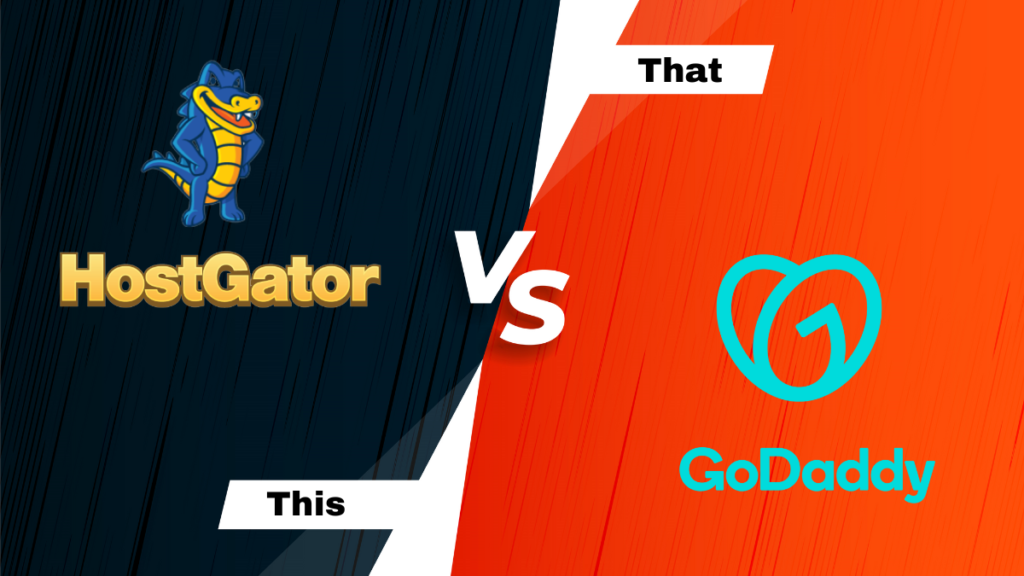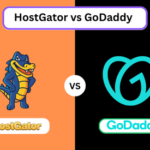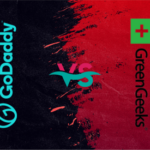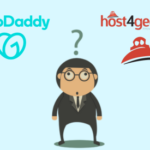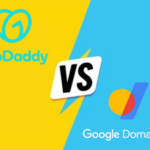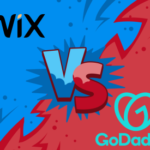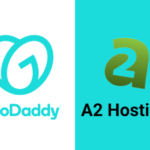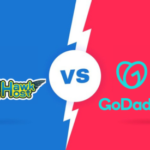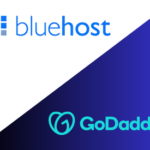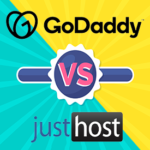We’ll evaluate HostGator vs GoDaddy a side-by-side comparison. We will focus on their pricing, usability, performance, security, and customer service. You are paying for these things in particular, after all.
The two most well-known individuals in the industry for online services are these two. The biggest domain registrar as well as web hosting company is GoDaddy. Regarding web hosting, HostGator is among the top options for novices.
Therefore, we are not shocked that you chose to compare these two.
It is never enough to base a choice solely on a provider’s reputation or claims. Then, we set up the websites, bought the accounts, and started looking around.
The pricing, usability, performance, security, and customer service were all tested in this comparison to learn everything there was to know about them. So, let’s start immediately with a brief rundown of the candidates running today.
GoDaddy Vs HostGator Comparison
Pricing
Regarding pricing, both HostGator and GoDaddy present comparable plans and costs. HostGator offers a trio of plans: Hatchling, Baby, and Business, while GoDaddy provides a selection of four plans: Economy, Deluxe, Ultimate, and Maximum.
While the plans themselves share similarities, HostGator holds the edge in affordability. Their basic plan is priced at $2.75 per month, a more budget-friendly option than GoDaddy’s $5.99 monthly rate (applicable when committing to a three-year payment period).
Storage & Security
The fundamental plans offered by HostGator and GoDaddy each accommodate hosting a single website. HostGator’s basic plan features unlimited solid-state drive (SSD) storage and bandwidth, a complimentary email account, and a secure sockets layer (SSL) certificate at no additional cost.
In contrast, GoDaddy’s entry-level plan encompasses hosting for one website with 100 GB SSD storage, bandwidth without metering limitations, a free domain, and a first-year inclusion of a Microsoft 365 email account.
It is vital to recognize that the range of features can markedly differ based on the chosen pricing tier. GoDaddy’s Economy and Deluxe plans need a secure sockets layer (SSL) certificate. The Ultimate plan becomes the requisite choice to access this crucial security feature without engaging a third-party SSL provider, albeit at twice the monthly expense.
Uptime
Whether you embrace it or not, it’s crucial to remain vigilant about your website’s uptime and the potential perils associated with downtime. Fortunately, both hosting providers acknowledge this significance and have implemented robust safeguards to mitigate the costly repercussions of substantial downtime.
HostGator pledges an impressive uptime guarantee of 99.9%. Should they fall short of meeting this service standard, you can request a credit applicable to your subsequent month of hosting. However, it’s worth noting that HostGator exercises discretion in granting such credits, necessitating a valid justification.
In contrast, GoDaddy prominently advertises a 99.9% uptime guarantee on its website but does not explicitly outline the compensation procedure in case of any lapse in meeting this commitment. Nonetheless, the guarantee’s presence implies a commitment to compensation during downtime.
Customer support
A noteworthy area where GoDaddy offers a significant challenge is its customer service realm. Instead of offering a ticketing system, it relies primarily on toll-free call-in product support and live chat assistance. However, the consistency of its live support has been a concern, occasionally resulting in extended wait times, sometimes even reaching up to an hour.
Conversely, HostGator presents a comprehensive array of customer service options, including 24/7/365 availability for email, live chat, and a ticketing system. This multi-faceted approach ensures customers have access to knowledgeable support specialists promptly. HostGator’s reputation shines brightly in terms of its swift and efficient customer service support.
Both services uphold a money-back guarantee, allowing you to evaluate their offerings before committing. Notably, HostGator extends a more generous trial period of 45 days, in contrast to GoDaddy’s 30-day timeframe.
Ease of Use
Both GoDaddy and HostGator furnish user-friendly dashboards designed with beginners in mind, seamlessly integrating with cPanel-based solutions. However, when venturing into dedicated and virtual private server hosting options, a higher level of technical understanding becomes essential due to the inclusion of customized server configurations within certain plans.
Nonetheless, for most customers opting for shared hosting, the assortment of 1-click installations, an intuitive dashboard, and streamlined navigation elements ensure a straightforward and user-friendly experience.
Conclusion
In the the battle of GoDaddy vs HostGator comparison, HostGator stands out as the more advantageous option between the two entities due to its cost-effective plans, exceptional uptime, and commendable customer service. On the other hand, GoDaddy may be a preferable selection for small businesses aiming to expand, courtesy of its virtual private server offering that accommodates unrestricted traffic.
Ultimately, opting for either service won’t lead you astray. Despite a few drawbacks, both companies remain premier choices for countless businesses and individuals worldwide.


